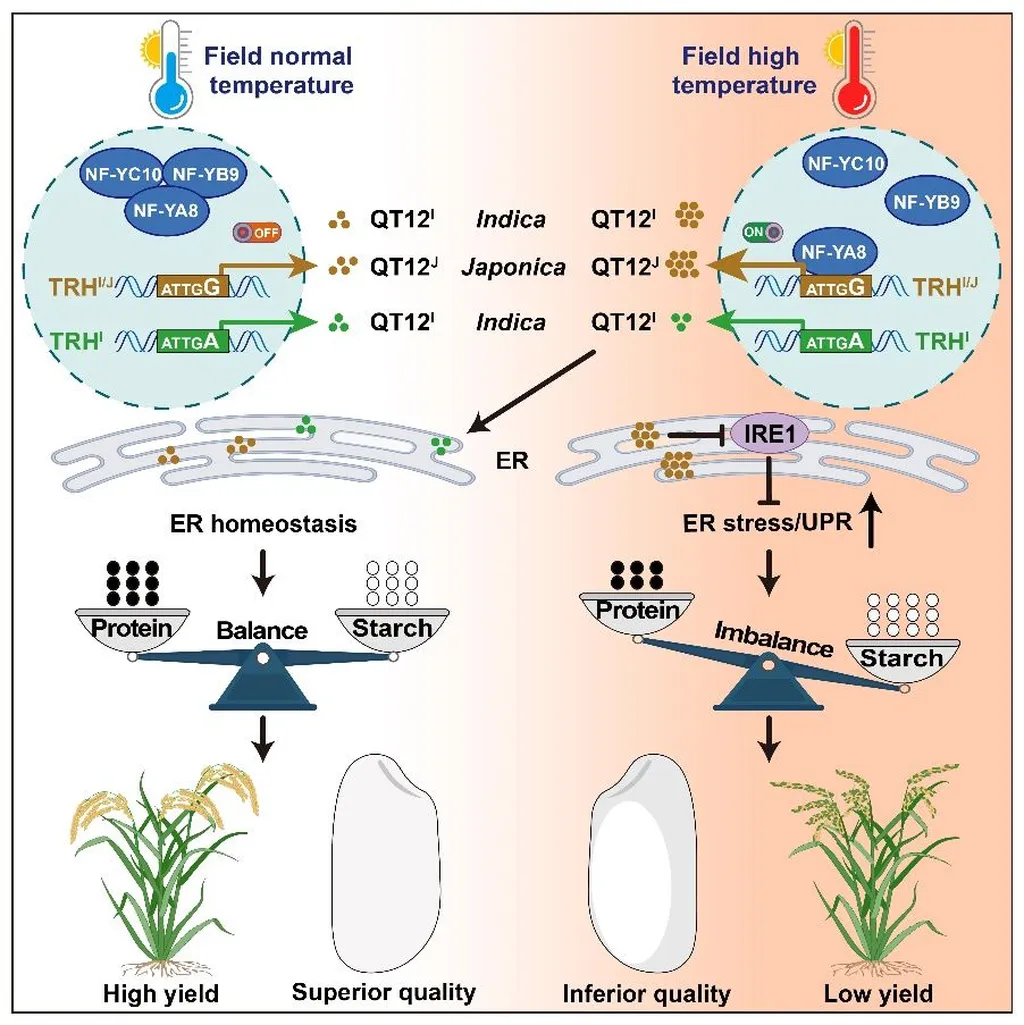In the face of rising global temperatures, scientists are racing to develop crops that can withstand heat stress and maintain productivity. A recent study published in the journal *Fundamental Research* (translated from Chinese as “基础研究”) offers promising insights into how a specific gene in rice could enhance heat tolerance, with potential implications for the energy sector.
The research, led by Min Jiang of Yangzhou University’s Jiangsu Key Laboratory of Crop Genetics and Physiology, focuses on the NADP-dependent malate dehydrogenase gene OsMDH8.2 in rice. This gene, expressed in both photosynthetic and non-photosynthetic tissues, plays a crucial role in the plant’s ability to adapt to high temperatures.
Jiang and her team found that transgenic rice lines overexpressing OsMDH8.2 exhibited superior adaptability to heat stress compared to wild-type plants. When subjected to temperatures of 40°C, the transgenic lines maintained better biomass and lower surface temperatures through stomatal closure, and their photosynthetic activity was less affected.
“OsMDH8.2 affects peroxidase activity by reducing hydrogen peroxide content in flag leaves after thermal stress,” Jiang explained. This reduction in oxidative stress is a key factor in the plant’s enhanced heat tolerance.
The study also revealed that OsMDH8.2 influences energy homeostasis in rice. Under heat stress, the gene reduces tricarboxylic acid cycle activity while inducing the glyoxylate cycle to produce more energy. Additionally, it regulates amino acid metabolism to mitigate heat damage.
These findings suggest that OsMDH8.2 could be a valuable tool for improving crop resilience to heat stress, a critical concern as global temperatures continue to rise. The gene’s ability to enhance the glyoxylate cycle’s efficiency could also lead to lower carbon dioxide release through stomatal closure, offering a potential strategy for reducing the environmental impact of agriculture.
The commercial implications of this research are significant. As the energy sector increasingly turns to biofuels and other plant-based energy sources, developing crops that can thrive in high-temperature environments will be essential. Rice, a staple crop for over half the world’s population, is a prime candidate for such advancements.
“This research provides a promising avenue for improving crop heat tolerance through genetic engineering,” Jiang said. “It offers a potential strategy for enhancing plant resilience and reducing environmental impact.”
The study’s findings could pave the way for future developments in agritech, with potential applications in other crops and plant-based energy sources. As the world grapples with the challenges of climate change, such innovations will be crucial in ensuring food security and sustainable energy production.
The research was published in the journal *Fundamental Research*, a peer-reviewed publication that focuses on fundamental research in various scientific disciplines. The study’s findings offer a glimpse into the future of crop improvement and the potential of genetic engineering to address global challenges.

